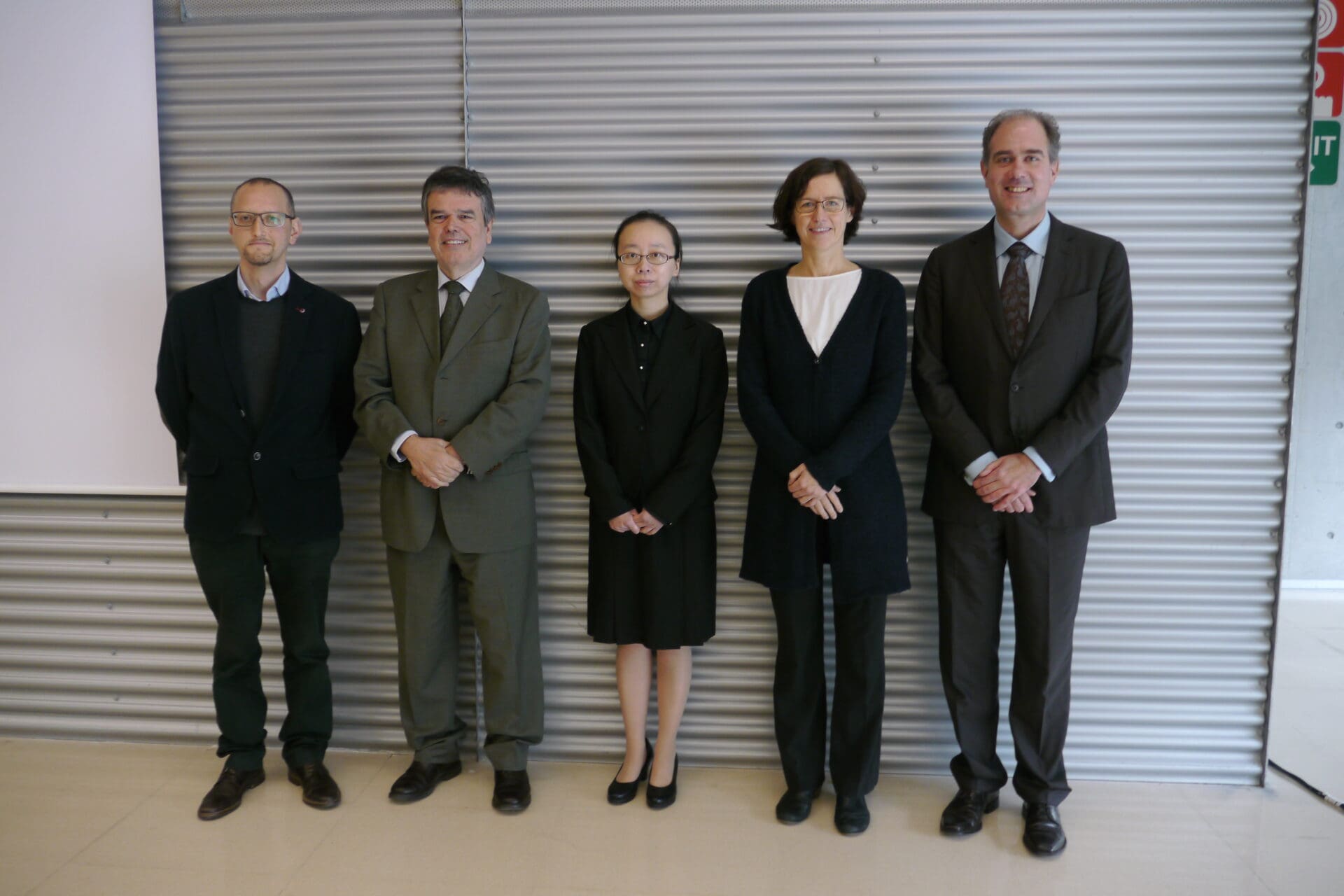New Doctor at ICIQ!
Yichen Wu, PhD student under the supervision of Dr. Alexandr Shafir (ICIQ), has defended her PhD Thesis entitled “Hypervalent Iodine as Directing Tool in Iodine-Retentive Transformation of C-H Bonds” (assigned to the Physical and Inorganic Chemistry Department of the Universitat Rovira i Virgili) publicly on December 11th at the ICIQ Auditorium.
The members of the evaluation committee were: Prof. Josep Bonjoch (Universitat de Barcelona), Prof. Berit Olofsson (Stockholm University) and Prof. Kilian Muñiz (ICIQ)
Abstract
The chemistry of organic hypervalent iodine compounds has been a potent and versatile toolbox in organic synthesis. In particular, organic λ3-iodanes have been utilized as 2-electron oxidants, as well as group transfer agents in a wide range oxidative functionalization processes. With few exceptions, such transformations are accompanied by the liberation of the parent organoiodine fragment. A less explored, but synthetically attractive possibility consists in incorporating both the organic group and the iodine atom into the final product. Such approach presents a clear synthetic appeal, given that the iodine retention opens the door for downstream derivatization. We present here a series of such “iodine-directed” coupling reaction employing aryl-λ3-iodane substrates.
In one approach, we have developed a metal-free α-arylation of ketones which takes place via the coupling ortho to iodine, after an in situ hypervalent activation of the iodine atom. The protocol shows good functional group compatibility on the arene core. The ortho-selectivity was rationalized by DFT calculations through an unusual low-barrier “iodonio-Claisen¨ process. We also developed a new approach for regioselective benzylation of the ArI(OAc)2 cores using benzyltrimethylsilane. Interestingly, the carbon-carbon coupling now takes place selectively at para position to the iodine atom. Finally, an approach for oxidative “iodoarylation” of imidazoles was uncovered. The procedure relies on an efficient activation of the parent NH-imidazole with ArI(OAc)2, followed by copper-catalyzed intramolecular 1,3 I-to-N aryl transfer to constitute the synthetically challenging N1-aryl-5-iodoimidazoles. The importance of this manifold resides in the ability of the 5-iodoimidazoles to act as precursors for a range of 1,5-substituted imidazoles.
Related news

Let's create a brighter future
Join our team to work with renowned researchers, tackle groundbreaking
projects and contribute to meaningful scientific advancements







 20-12-2024
20-12-2024 


















